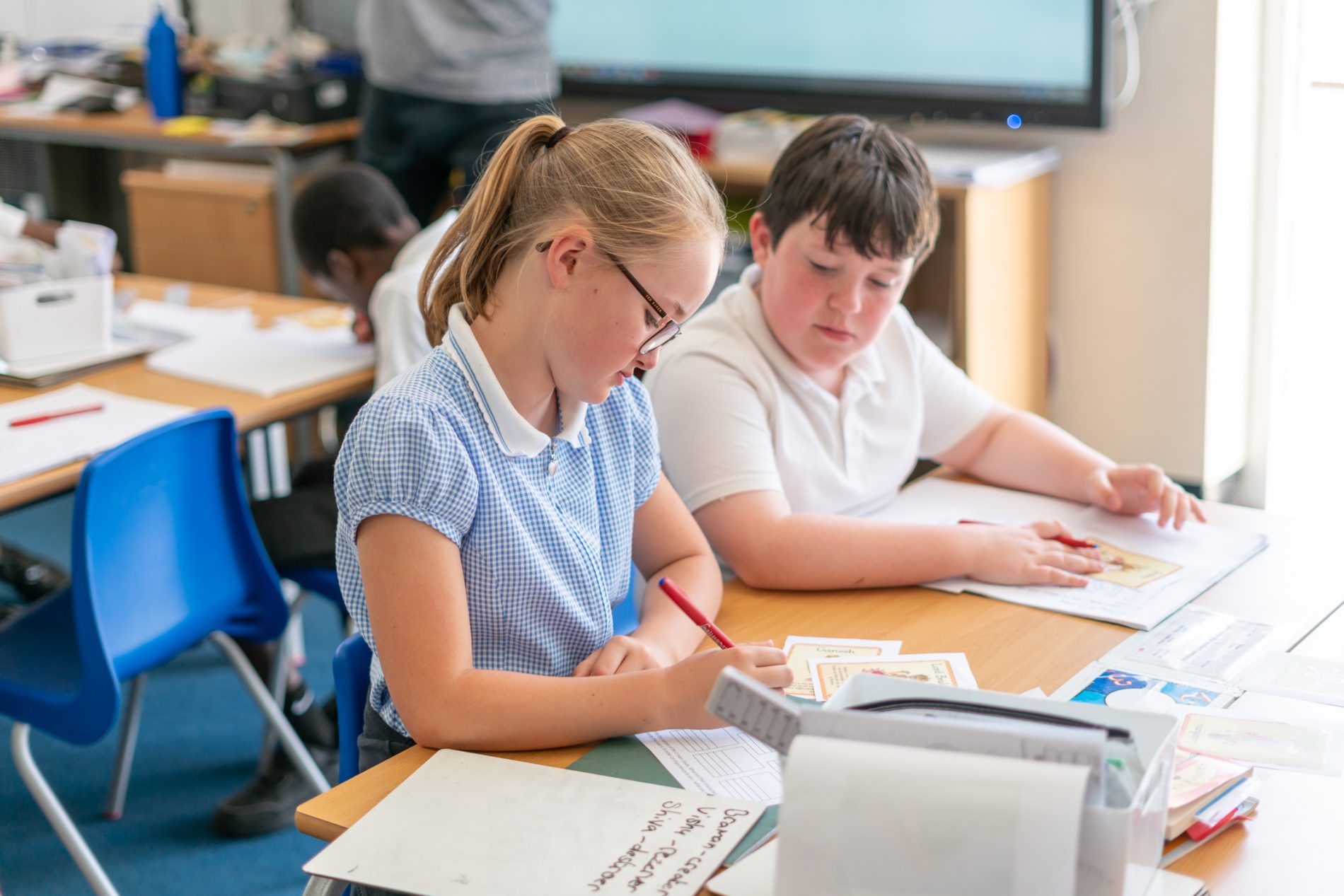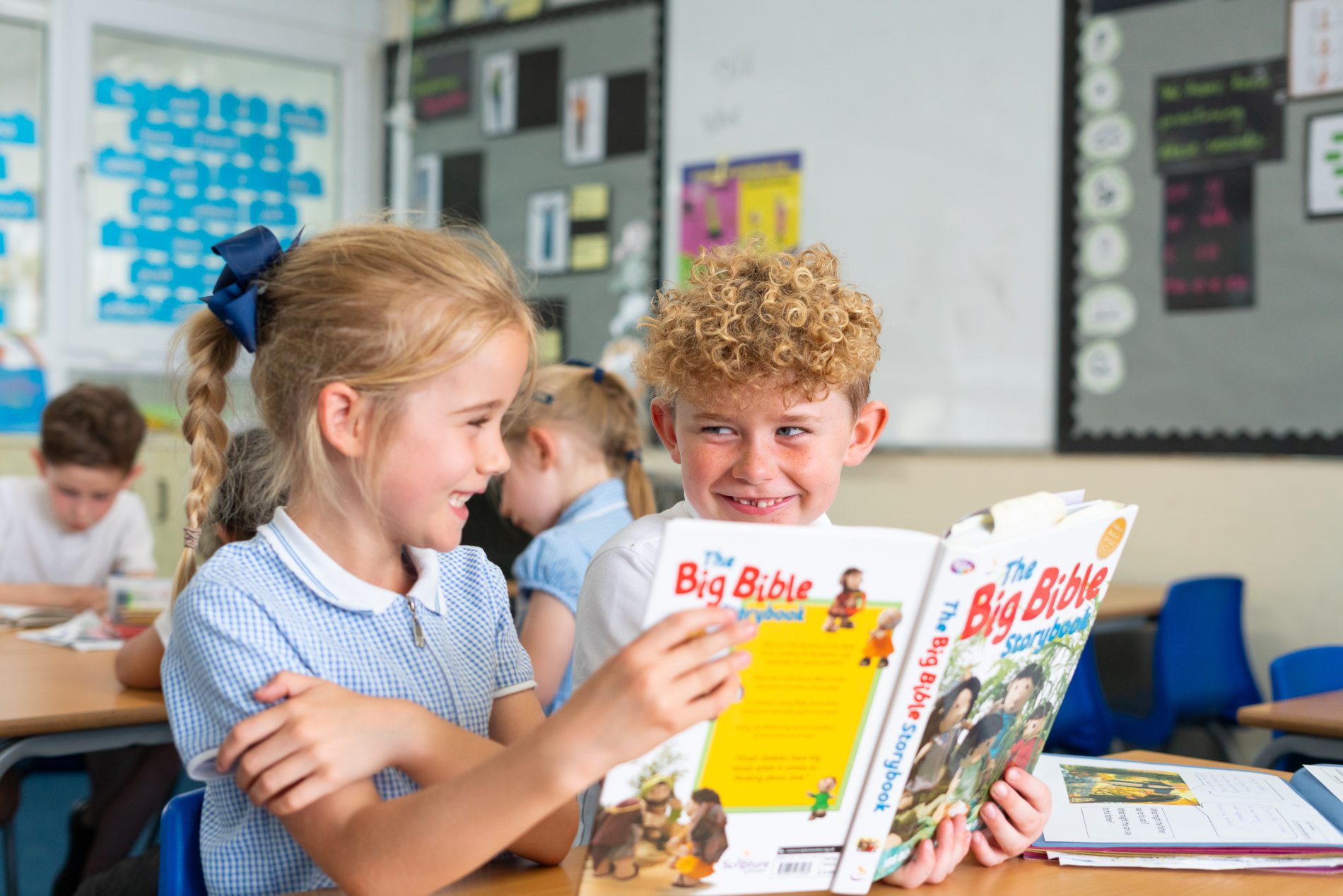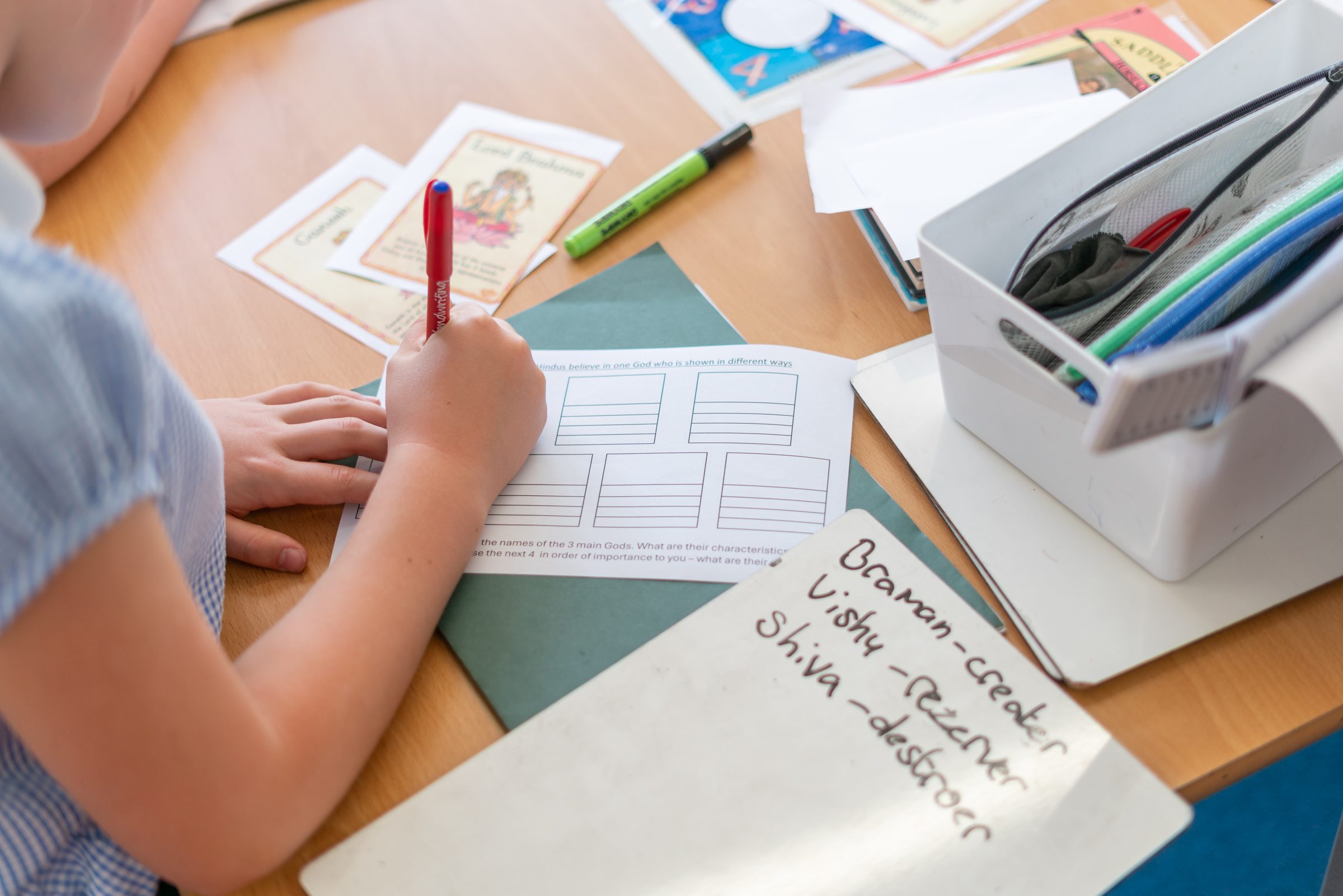Religious Education Subject Leader: Mrs R Walters
We are God’s family – learning together, loving together and growing together – striving to be the best we can be for ourselves, for God and for others.
“Which one of you, having a hundred sheep and losing one of them, does not leave the ninety-nine in the wilderness and go after the one that is lost until he finds it?” Luke 15:4 As outlined in the Church of England Statement of Entitlement, at Sutton-at-Hone CE Primary School, we believe that Religious Education should enable every child to flourish and to live life in all its fullness. (John 10:10). It will help educate for dignity and respect encouraging all to live well together.
Our RE curriculum aims to enable children to; acquire a deep knowledge and understanding of Christian belief and practice, explore key concepts and questions and explore various religious beliefs and practises. RE is taught on a once weekly basis throughout the school in a variety of different ways. In addition to this, each year group visits a place of worship and we have a whole day dedicated to RE in the summer term. Religious education has a high profile role within our school and it forms a very important part of our Christian vision. In addition to this, RE contributes to pupils’ understanding of spiritual, moral, social and cultural development and British Values.
Intent
Religious Education is an educational activity that promotes the spiritual, moral, social, and cultural development of pupils. It aims to enable pupils to:
- know about and understand Christianity as a living world faith, by exploring core theological concepts
- develop knowledge and skills in making sense of biblical texts and understanding their impact in the lives of Christians
- develop their abilities to connect, critically reflect upon, evaluate and apply their learning to their own growing understanding of Christianity, of religion and belief more widely, of themselves, the world and human experience.
Spiritual, moral, social and cultural development Religious Education has a particular contribution to this aspect of education because of its subject matter and the approach that is taken to the subject in this school. Pupils are encouraged to:
- develop their own spirituality by exploring religious ideas and reflecting upon them for themselves
- develop morally by considering religious codes of conduct and discussing moral issues
- explore the social aspects of religion such as religious lifestyles
- listen to each other and to respect people whose ideas are different from their own.
Cultural development is promoted by an emphasis on Christianity, which has influenced British art, music and literature over the centuries. Our pupils are also encouraged to appreciate the diversity and richness of other cultures by studying some of the other principal religions in Great Britain. All staff engage in this teaching and learning experience with the pupils, to allow and encourage the children to develop a deep sense of self.


Implementation
Religious Education is a core subject at our school and we follow the Understanding Christianity curriculum which is adapted to suit our pupils where necessary. The curriculum follows a two-year cycle for all classes, with the first year focusing on core learning and the second year on deepening understanding.
Impact
Pupils are taught both about religion and theology and to learn from religion and theology. The first of these objectives refers to knowledge and understanding of religions. The second makes this knowledge relevant to the pupils and encourages them to relate this to themselves. Within the new Diocesan Syllabus (2017) these attainment target areas are assessed at the end of each core unit by a series of relevant statements. These will be measured against national levels which are adopted by the Rochester Diocese and reported on at the end of each year.

Religious Education in Each Stage
EYFS: Creation, Incarnation, Salvation In Early Years Foundation Stage, teachers will lay the foundations for RE by following the recommended Early Learning Goals, particularly ‘Personal, Social and Emotional Development’ and ‘Understanding of the World’.
KS1: God, Creation, Incarnation, Gospel, Salvation, Faith stories (Year 1), Judaism (Year 2) In Key Stage 1 our school draws on Christianity mainly and begins to explore faiths other than Christianity.
LKS2: Creation/ Fall, People of God, Incarnation/ God, Gospel, Salvation, Kingdom of God, Sikhism (Year 3), Hinduism (Year 4)
UKS2: God, Creation/Fall, People of God, Incarnation, Gospel, Salvation, Kingdom of God, Islam (Year 5), Buddhism (Year 6)
In Key Stage 2 Christianity continues to be studied for over 80% of the time. In addition, the pupils study Sikhism, Hinduism, Islam and Buddhism as set out in the Diocesan Syllabus. The following aspects of religions are considered: symbolism, worship and celebration, authority (i.e. key figures, religious leaders and holy books), values and lifestyles, and questions about the meaning and purpose of life.
Religious Education Progression
SEND Information
Our SEND pupils are supported through our RE curriculum.

